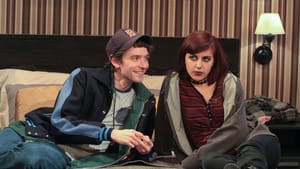Stay in the Loop
BSR publishes on a weekly schedule, with an email newsletter every Wednesday and Thursday morning. There’s no paywall, and subscribing is always free.
Lost, then found
Theatre Exile presents John Pollono's 'Lost Girls'

Theatre Exile makes a habit of showcasing great acting in small spaces, none tinier than its own Studio X in South Philly, where John Pollono’s Lost Girls is another gritty, well-acted area premiere.
A vision of snow
Unlike here, it still snows in Manchester, New Hampshire, in December, as we see outside the door of Maggie’s apartment. Colin McIlvaine’s designed this compact, realistic set, subtly lit by Thom Weaver. Single mom Maggie, played by Molly Ward, copes with a rebellious teenage daughter – much as her mother Linda (Catharine Slusar) did with her. The three women live together; Maggie’s cop ex, Lou (Sean Bradley), has cleaned up his drinking problem after their divorce and married Penny, a modest church-goer unaccustomed to the family’s bluntness.
Lou still does “the involved father routine,” as Maggie calls it, so when her car goes missing during a snowstorm and they realize 16-year-old Erica has taken it, they’re forced to cooperate – but not without reviving old resentments, as ex-couples are prone to do.
The play has a glib sitcom quality early on, with Linda particularly written in punchlines and Maggie complaining broadly about single motherhood and poverty. (That playwright Pollono is also a TV actor, currently in This Is Us, may be more than coincidental.) The play takes off, however, when the scene shifts to a motel room – thanks to McIlvaine’s nifty turntable set – and we meet a teenage goth girl (Susanne Collins, tremendously raw and genuine) and a naïve athlete (Trevor William Fayle, equally believable) who’s crushed on her all his life.
At first, their relationship isn’t “Romeo and Juliet with the last few pages ripped out,” as he hopes, and their misadventures feel much less familiar and contrived than the where-is-my-baby panic in Maggie’s apartment. As the two stories build in juxtaposition, however, both strengthen, especially when Linda becomes more real, Penny asserts herself, and Lou and Maggie connect.
Family drama, twisted
What occurs encompasses the past, present, and future of three generations, with some big surprises that erase the awkwardness of this 90-minute play’s first third. Director Joe Canuso reveals the script’s deeper themes instead of riding its jokes, and his actors excel as stakes increase.
Maggie is the play’s emotional center, as both frustrated mother and daughter, questioning her life’s purpose; Ward’s powerful performance starts frazzled and builds to tragic proportions. Collins perfectly captures a uniquely teenage combination of anger, impatience, and fear. Frears’s Penny resists the conservative Christian cliché, making her relative calm a significant counterpoint to everyone else’s ragged emotionalism. Slusar overcomes first impressions as a stereotypical wiseass slob, as does Bradley as the overbearing ex-husband. Fayle’s teenage innocent likewise is revealed to be more complicated than first impressions suggest.
One of many things I appreciate about theater is that we can’t just change the channel on a moment’s whim. If Lost Girls was on TV, my thumb would be itching to surf in the first scene. Lost Girls pays off big, though, proving that patience has its rewards.
What, When, Where
Lost Girls. By John Pollono; Joe Canuso directed. Through March 12, 2017, at Theatre Exile's Studio X, 1340 South 13th Street, Philadelphia. (215) 218-4022 or theatreexile.org.
Sign up for our newsletter
All of the week's new articles, all in one place. Sign up for the free weekly BSR newsletters, and don't miss a conversation.

 Mark Cofta
Mark Cofta